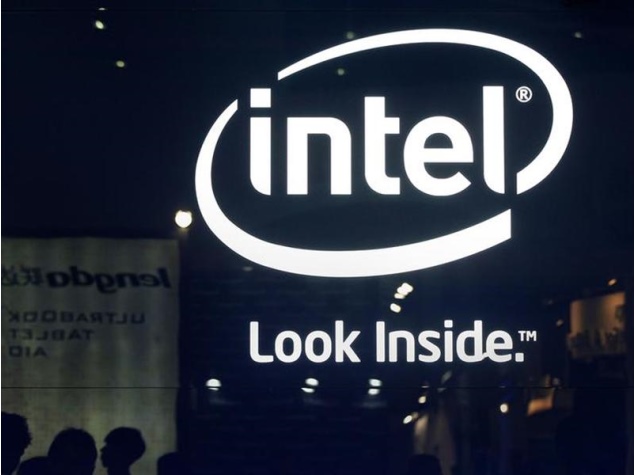- Home
- Laptops
- Laptops News
- Intel tightens executive pay to promote accountability in slowing PC market
Intel tightens executive pay to promote accountability in slowing PC market

The steps to push executives to perform better were the latest indication that Chief Executive Officer Brian Krzanich, who took over almost a year ago, is streamlining the chipmaker in the face of slow demand.
Performance-based equity awards for senior executives will no longer have a minimum value and can fall to zero if shareholder returns do not meet thresholds, Intel said in a letter to stockholders on Monday.
As well, Intel will require its 350 most senior executives to own company stock. Under the previous policy, only the 50 most senior employees executives had to hold company stock.
"One of the top priorities of new CEO Brian Krzanich is to further strengthen our culture of accountability, engagement, and empowerment," Intel said in the letter.
Since replacing previous CEO Paul Otellini in May 2013, Krzanich has made major changes, including plans to make Intel's prized production lines broadly available to chip designers willing to pay, and reorganizing Intel's business divisions to make them more accountable to him.
Intel said it has no foreseeable plans to hand out retention grants to its senior leadership. In 2012, after Otellini announced plans to step down, Intel paid retention grants to a handful of its top executives to keep them from leaving at a sensitive time.
Last year, Krzanich's total compensation was $9.1 million, down from $15.7 million the year before, when he was chief operating officer and received a retention payment.
Intel has been slow to adapt its processors for smartphones and tablets, markets now dominated by rivals like Qualcomm Inc and Samsung Electronics Co Ltd.
And its core market is crumbling. Global PC shipments fell 10 percent last year, the worst annual drop since research firm Gartner began tracking them.
In January, Intel said it would reduce its global workforce of 107,000 employees by about 5 percent as it realigns its focus to faster growing areas.
As well as tablets and smartphones, Intel is keen to sell chips to be used in future devices like smart watches and other wearable computers.
Also in January, Intel said a newly built factory in Chandler, Arizona, originally slated as a $5 billion project that in late 2013 would start producing Intel's most advanced chips, would remain closed for the foreseeable future.© Thomson Reuters 2014
Catch the latest from the Consumer Electronics Show on Gadgets 360, at our CES 2026 hub.
Related Stories
- Samsung Galaxy Unpacked 2025
- ChatGPT
- Redmi Note 14 Pro+
- iPhone 16
- Apple Vision Pro
- Oneplus 12
- OnePlus Nord CE 3 Lite 5G
- iPhone 13
- Xiaomi 14 Pro
- Oppo Find N3
- Tecno Spark Go (2023)
- Realme V30
- Best Phones Under 25000
- Samsung Galaxy S24 Series
- Cryptocurrency
- iQoo 12
- Samsung Galaxy S24 Ultra
- Giottus
- Samsung Galaxy Z Flip 5
- Apple 'Scary Fast'
- Housefull 5
- GoPro Hero 12 Black Review
- Invincible Season 2
- JioGlass
- HD Ready TV
- Laptop Under 50000
- Smartwatch Under 10000
- Latest Mobile Phones
- Compare Phones
- Honor Magic 8 RSR Porsche Design
- Honor Magic 8 Pro Air
- Infinix Note Edge
- Lava Blaze Duo 3
- Tecno Spark Go 3
- iQOO Z11 Turbo
- OPPO A6c
- Samsung Galaxy A07 5G
- Lenovo Yoga Slim 7x (2025)
- Lenovo Yoga Slim 7a
- Lenovo Idea Tab Plus
- Realme Pad 3
- Moto Watch
- Garmin Quatix 8 Pro
- Haier H5E Series
- Acerpure Nitro Z Series 100-inch QLED TV
- Asus ROG Ally
- Nintendo Switch Lite
- Haier 1.6 Ton 5 Star Inverter Split AC (HSU19G-MZAID5BN-INV)
- Haier 1.6 Ton 5 Star Inverter Split AC (HSU19G-MZAIM5BN-INV)







![[Sponsored] Haier C90 OLED TV | Dolby Vision IQ, 144Hz OLED and Google TV in Action](https://www.gadgets360.com/static/mobile/images/spacer.png)









